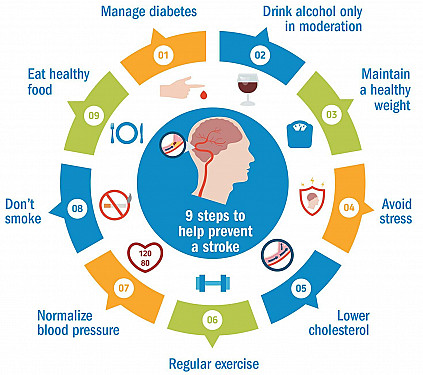Do beta blockers interfere with exercise?
On call

Q. I manage my high blood pressure with hydrochlorothiazide (a diuretic) and long-acting metoprolol (a beta blocker). I feel fine, but my heart rate doesn't go up like it used to before I started taking the metoprolol. Does that mean I am not getting as much health benefit whenever I exercise?
A. All beta blockers slow down your heart rate. The slower rate happens at rest and also when you exercise. To get the most from aerobic exercise, you would normally want your heart rate in a moderate-intensity zone for at least 30 minutes most days of the week. Moderate intensity means exercising at a heart rate that is 60% to 75% of your maximum.
A simple commonly used formula to estimate your maximum heart rate is 220 minus your age. An alternative formula has you multiply your age times 0.7 and subtract that from 208. Because there are multiple variables that influence your true maximal heart rate, these are at only estimates, at best.
According to these equations, if you are 60, your suggested maximum heart rate would be calculated at either 160 or 166, not much difference. But many healthy men around age 60 or older have a higher maximum heart rate and a higher heart rate range while doing moderate-intensity aerobic exercise. For people who take a beta blocker, using either formula probably won't help at all.
Instead, you can use your breathing to gauge your effort. With moderate-intensity exercise, you should be able to talk, but with pauses to catch your breath. If you are breathing very hard and unable to speak during exercise, you are at high intensity.
Can beta blockers affect your ability to work out? Studies that have addressed your question have not provided a definitive answer. A competitive athlete's performance likely could be diminished by taking a beta blocker. However, for most of us who exercise to stay healthy, the evidence tilts toward no decrease in benefit, even though you may not hit the standard heart rate goals.
So, your beta blocker won't prevent you from getting the positive effects of exercise. You will still build muscle, keep your bones strong, and lower your cholesterol and blood sugar levels. You'll also improve your heart's efficiency and endurance.
If you recently started the beta blocker, you might feel less energetic and even sluggish during your exercise routine. But over time, you should get back to the same sense of fulfillment from working out.
I took a beta blocker when I was diagnosed with hypertension. I didn't like not having my heart rate to guide my workouts. So, I switched to a drug from a different class of medication that doesn't slow heart rate. However, there may be reasons your doctor specifically wants you on a beta blocker. It's a good question to ask at your next doctor visit.
Image: © pedrosala/Getty Images
About the Author

Howard E. LeWine, MD, Chief Medical Editor, Harvard Health Publishing; Editorial Advisory Board Member, Harvard Health Publishing
Disclaimer:
As a service to our readers, Harvard Health Publishing provides access to our library of archived content. Please note the date of last review or update on all articles.
No content on this site, regardless of date, should ever be used as a substitute for direct medical advice from your doctor or other qualified clinician.
















